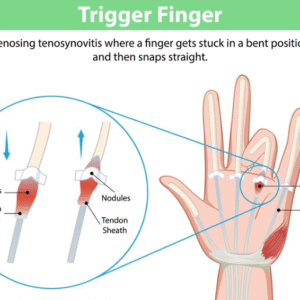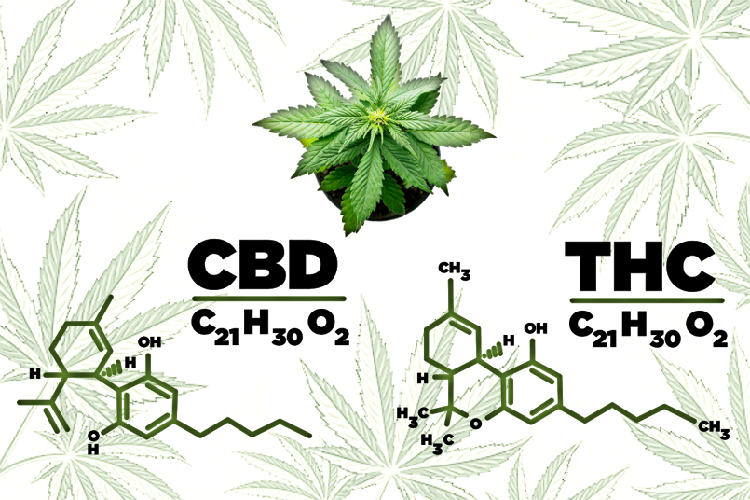The connection between growth hormone deficiency and hypoglycemia is not always easy to understand. Growth hormone, also called human growth hormone (HGH) has both a direct and indirect impact on blood sugar levels. As we age, our bodies begin to produce less GH than they did when we were young. Growth hormone production peaks during puberty, levels off in one’s twenties, and begins to decline by the age of thirty. However, we continue to produce GH throughout our lives – just to a lesser degree.
As growth hormone levels change, they also influence the production of other hormones, including insulin growth factor 1 (IGF-1) and testosterone. By reducing the stimulus that supports testosterone production, a spiraling result also impacts estrogen and dihydrotestosterone (DHT) levels. Growth hormone imbalance also influences cortisol, glucagon, insulin, and epinephrine levels. In other words, maintaining a proper hormonal balance is critical for normal bodily functions – blood sugar regulation, included.
Can HGH cause hypoglycemia if its levels get too low?
That is what we will explore in this report on HGH and hypoglycemia. It may help to begin with some basic information about growth hormone deficiency and hypoglycemia first.
*Maintaining a proper hormonal balance is critical for normal bodily functions.
What Is Growth Hormone Deficiency?
It may seem that every adult would get growth hormone deficiency since production begins to decline as early as one’s mid-twenties. That is not necessarily the case. The body has the innate ability to adjust to many changes in hormone levels. That is why women go through menopause and men experience andropause. Of course, those conditions can also lead to unwanted symptoms in much the same way as with growth hormone deficiency and hypoglycemia.
Growth hormone deficiency occurs when the amount of GH secreted by the pituitary gland no longer meets the needs of the body. When that happens, a person will start to exhibit symptoms of this decline. In the early stages of GHD, an adult can make some basic lifestyle changes that may help increase growth hormone secretion. Getting proper sleep and exercise, losing weight, reducing stress, and even intermittent fasting can help boost growth hormone production.
If the symptoms of growth hormone deficiency persist, testing is in order to measure GH blood levels. The most common symptoms of GHD in adults include:
- Lack of energy
- Insomnia or poor sleep
- Loss of muscle and bone mass
- Increased abdominal fat
- Lack of focus, memory loss, and impaired cognitive functions
- Premature physical signs of aging including thinning hair and wrinkles
- Low libido
- Sexual performance decline
- Blood sugar and cholesterol level changes
- Weakened immunity
- Mood swings, anxiety, and depression
*Changes in blood sugar levels are the reason for discussing the connection between growth hormone and hypoglycemia.
What is Hypoglycemia?
Hypoglycemia, itself, is not a disease, rather it is a condition that occurs in response to something else. When a person has hypoglycemia, his or her blood sugar levels drop to a very low point. That is why drinking orange juice or eating a piece of chocolate can help improve the symptoms. People with diabetes – a condition that occurs when there are elevated levels of blood sugar – can develop hypoglycemia because insulin treatment can lower blood sugar levels by increasing glucose uptake by the cells. Insulin enhances the sensitivity of the cells to glucose, making it possible for better use of glucose. As the cells take in the glucose, blood sugar levels decline.
As we continue to look at growth hormone deficiency and hypoglycemia, it might help you to understand the symptoms that may occur when blood sugar levels drop:
- Sweating
- Hunger
- Irritability or anxiety
- Nausea
- Slurred speech
- Sleepiness
- Pallor
- Unresponsive behavior
- Confusion
- Lack of coordination
- Headaches
- Blurred vision
- Dry mouth
- Fatigue
- Body shakes
- Light-headedness
- Heart palpitations or abnormal heartbeat
- Pins and needles feeling
- Vomiting
In severe cases of hypoglycemia, a person can experience fainting or seizures. Next up, we look at how hypoglycemia influences growth hormone.
*Hypoglycemia is not a disease – it is a condition that occurs when blood sugar levels drop too low.
Does Hypoglycemia Cause Growth Hormone Deficiency?
The relationship between growth hormone deficiency and hypoglycemia is an interesting one. Growth hormone plays an essential role in how the body metabolizes everything we eat. From protein to carbohydrates to lipids (fats), GH helps regulate how well the food converts to the fuel we need for energy – glucose. After eating, insulin secreted by the pancreas enters the bloodstream to tell the cells to take in that glucose. As insulin levels increase, growth hormone production declines.
The connection between HGH and hypoglycemia occurs when blood sugar levels decline. As the insulin promotes cellular glucose uptake, blood sugar leaves the bloodstream. Having done its job, insulin levels also decline. As a result, the hypothalamus tells the pituitary gland to make more growth hormone. With lower blood sugar levels (hypoglycemia), more growth hormone enters the bloodstream to facilitate two crucial functions – lipolysis and ketogenesis. We will discuss those functions in greater detail in the next section.
The body now needs to increase blood sugar levels to avoid hypoglycemia. How does HGH cause low blood sugar to reverse? Growth hormone helps to promote the processing of glucagon – stored glucose found in the liver and tissues. Once processed, the glucagon can once again enter the bloodstream as glucose.
*Blood sugar, insulin, and growth hormone are part of a delicate balance that is in a continual state of flux in the body.
Does Growth Hormone Deficiency Cause Hypoglycemia?
Now we look at the effects of growth hormone on lipolysis and ketogenesis and how that impacts hypoglycemia:
- Lipolysis breaks down lipids through a process called hydrolysis where it turns fat cells (triglycerides) into glycerol and free fatty acids (FFAs). When the body needs energy for exercise, or when fasting reduces food intake, it turns to lipolysis for the mobilization of stored fat.
- Ketogenesis produces ketone bodies used to break down fatty acids to provide the needed energy. The keto diet is a prime example of this as fasting causes an increase in growth hormone production necessary to stimulate lipolysis and ketogenesis.
As we look at how low HGH causes hypoglycemia, we find that the lack of growth hormone causes an increase in insulin production. That excess insulin stimulates glucose uptake, reducing blood sugar levels in the body. If too much insulin enters the bloodstream, it can further deplete glucose levels causing hypoglycemia.
The body responds to this effect of growth hormone deficiency and hypoglycemia by increasing HGH production, lowering insulin levels, and boosting blood glucose levels. Now, if GH levels get too high, they can further inhibit insulin from doing its job, causing elevated blood sugar levels which can lead to diabetes. That is why maintaining a healthy hormonal balance is critical.
*Growth hormone deficiency can result from hypoglycemia as well as contribute to it.
Impact of Human Growth Hormone on Hypoglycemia
Adults with growth hormone deficiency can benefit from HGH therapy on many levels. Human growth hormone injections reverse the symptoms of GH deficiency. After exploring the question of does HGH cause hypoglycemia, we see that low growth hormone levels can cause too much insulin to deplete glucose in the bloodstream.
By using HGH therapy, we can effectively balance these hormone levels. HGH has helped reduce and sometimes eliminate insulin use in adults with type 2 diabetes. Hormone specialists carefully monitor blood glucose levels in people receiving HGH therapy. Remember, HGH helps the body metabolize stored fat which aids in weight loss. Doctors recommend losing weight for anyone with diabetes.
For further information about growth hormone deficiency and hypoglycemia, please contact Nexel Medical for a confidential, no-cost consultation.
*HGH therapy can help improve symptoms of both hypo and hyperglycemia.






